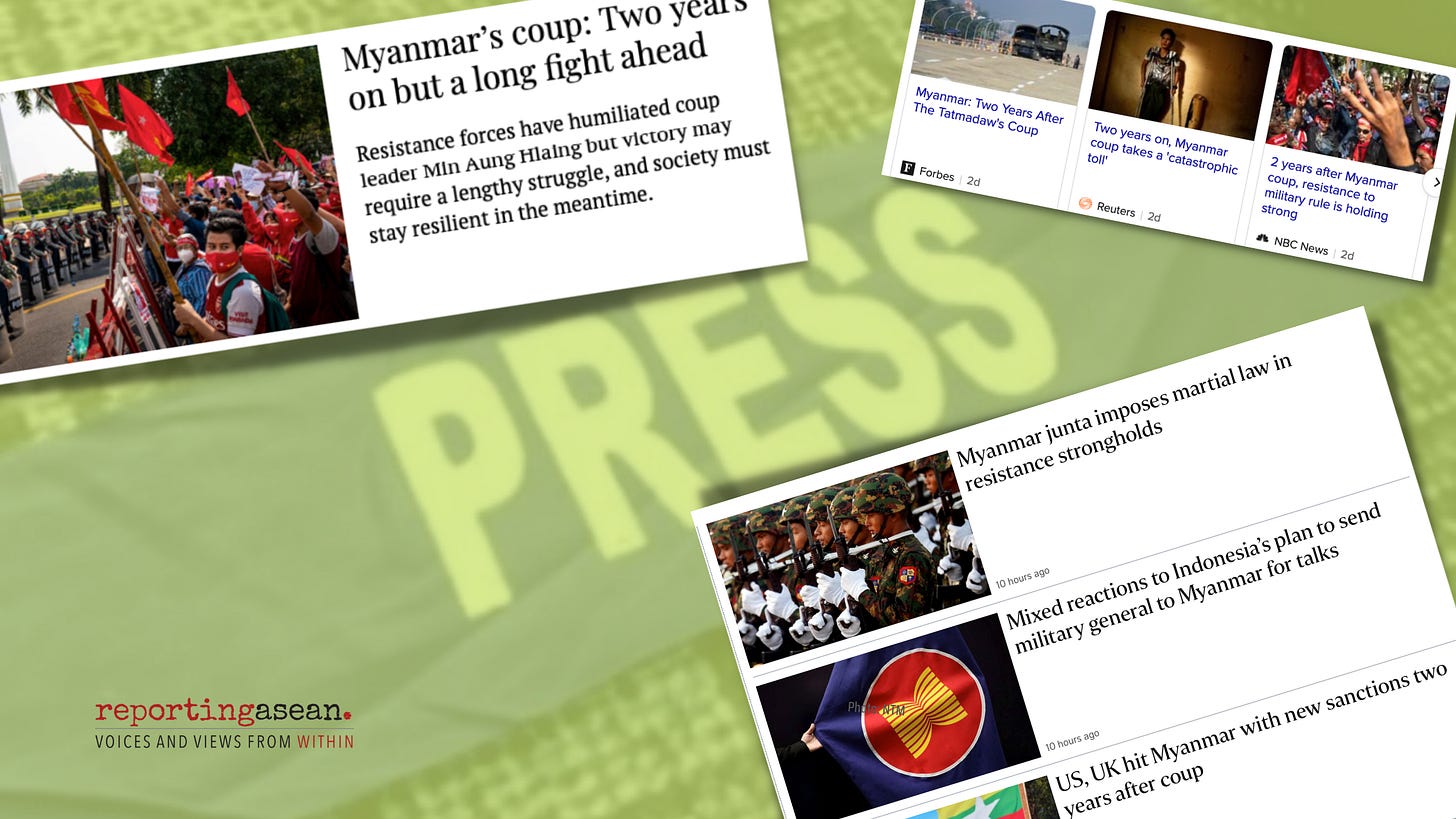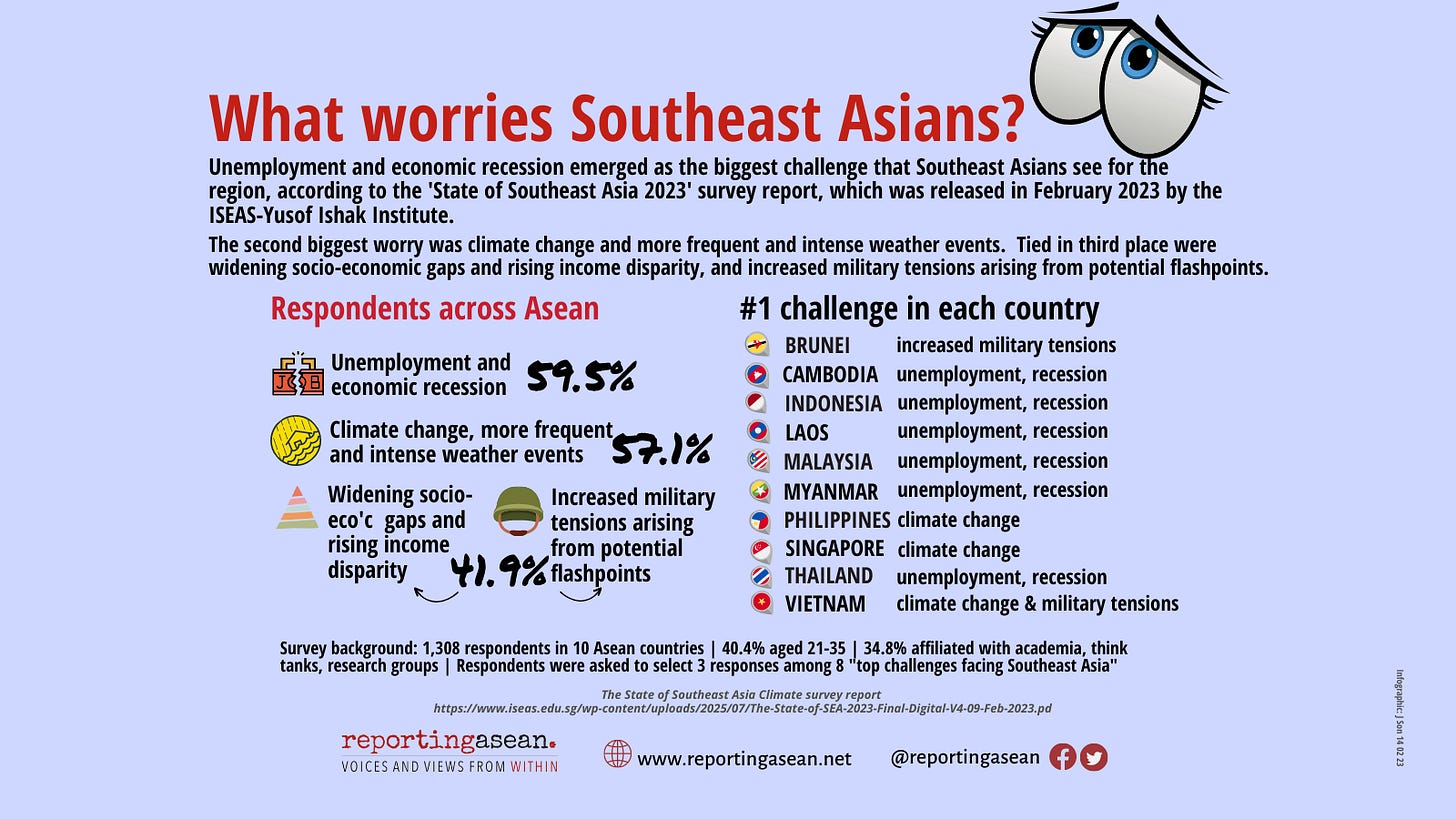Myanmar Gets Less Interest than Ukraine, Southeast Asia's Power Equation and Its Worries
February is the anniversary of the Myanmar military coup of 1 February 2021, as well as the Russian invasion of Ukraine, which started on 24 February one year ago.
These dates on the news calendar come at a time when we’re hearing a lot of talk, and fretting, in Southeast Asian circles, about the drop in interest in Myanmar’s multiple crises two years after the military takeover in that country of over 55 million people.
One could talk about the differences between the two issues, but the Ukraine and Myanmar resistance efforts face some similar challenges around international attention, forms of support and a campaign for resources from larger and global powers, including around aid.
Are people still searching for Myanmar news? Out of curiosity, I took a look at how Google news searches for Myanmar compared to Ukraine over the last year. I keyed in the metrics for worldwide data, ‘news search’ for type of search category, timeframe of February 2022 to 2023, and the search terms ‘Myanmar’ and ‘Ukraine’.
One could look at the results, in the visual above, as a snapshot of international reader attention as well as the way news cycles work: Myanmar has been getting less searches than Ukraine, but searches for Ukraine have also dipped sharply since the invasion began.
Do read more from this issue below –
Johanna Son, Reporting Asean editor/founder
1 Myanmar on Our Minds
Two Years After the Coup, Journalists Go Underground, But Soldier On
By MOE TAIN
Doing news work in Myanmar comes with high risk to life and safety, in a profession with uncertain prospects for the future. Since the 2021 coup, the junta has been using legal persecution as a weapon against journalism and journalists.
Read: Results of a survey on online hostility against Myanmar’s journalists
‘I’m Angry When Someone Calls Me A Soldier’s Wife’
By LU KYAW
Ma Aye, whose husband left the Myanmar military after the 2021 coup and who was a soldier’s daughter, gives an insider’s view of life, exploitation and discrimination in the armed forces.









